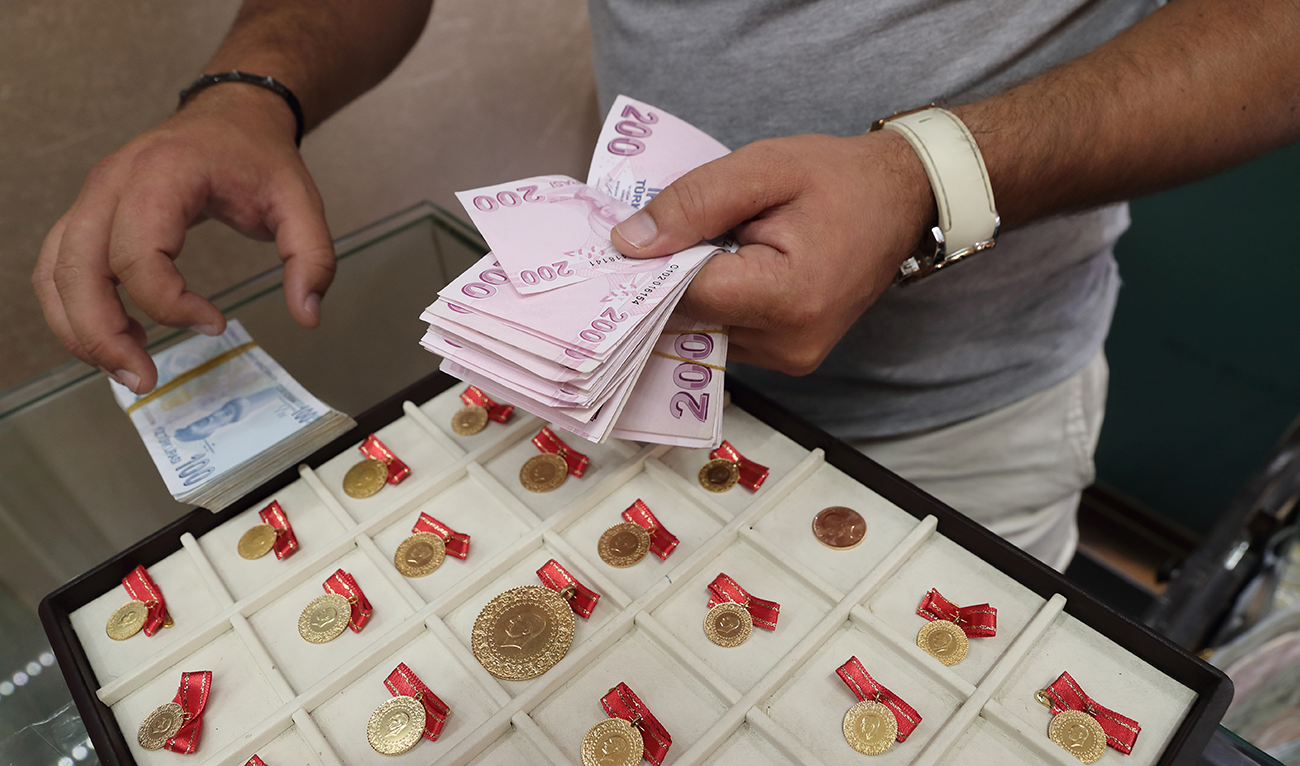ANKARA: The Turkish lira continues to lose value against the US dollar, pushing people to place their foreign currency deposits in banks as a precaution, in a sign of mistrust in economic indicators.
The amount of foreign currency deposits in Turkish banks belonging to Turkish residents has reached $248.6 billion, according to official data — the highest level in years.
Data revealed that in the period between July 10 and Aug. 7, the amount of foreign currency and gold assets in the banking system increased $18.2 billion.
Foreign investors, meanwhile, have withdrawn nearly $1.5 billion in assets from Turkey.
In the meantime, Turkish public banks have started applying a 0.2 to 0.5 percent commission on buying and selling foreign currencies, to discourage the increased amount of circulating cash and to decrease record exchange rates the lira recently witnessed.
But this hasn’t persuaded people to leave their foreign currency savings in banks for relative security.
“The degree of dollarization in the economy has accelerated, which is pushing the lira lower due to the rising foreign currency demand,” Nikolay Markov, senior economist at Pictet Asset Management, told Arab News.
According to Markov, as long as the Central Bank of Turkey can provide dollars or other foreign currencies to refinance to the banking system, Turkish banks shouldn’t face too many problems.
“The problem is further lira depreciation, which is inflationary and leads to a wider current account deficit in the short term, which can precipitate a balance of payments crisis,” he said.
Experts have long urged the Turkish government for an emergency rate hike. But the government claims the lira’s competitiveness is more important than the exchange rate, and has kept spending foreign currency reserves to keep the forex rate almost fixed.
When asked in a TV interview on Aug. 12 if people should be concerned about the rise of the dollar and whether life would become much more expensive in Turkey, Treasury and Finance Minister Berat Albayrak, son-in-law of Turkish President Recep Tayyip Erdogan, asked his interviewer Ahmet Hakan whether he was paid in dollars.
“The goal of the cash commissions is to discourage the lira conversion into foreign currency, to reduce the downward pressure on the lira, and also to curb the informal and nondeclared transactions. Cash commissions for foreign currency transactions are quite common globally, and especially in emerging market countries,” Markov said.
Amid the coronavirus disease pandemic that has undermined global economic activity, Turkey posted a budget deficit for a sixth straight month, with a monthly fiscal gap of 29.7 billion lira ($4 billion) in July, bringing the deficit over the first seven months of this year to 139.1 billion lira. The debts of Turkish companies in foreign currency are also a cause for concern.
According to Timothy Ash, a London-based senior emerging markets strategist at Bluebay Asset Management, applying commissions on foreign exchange reserves can either work, or could make people more worried about the safety of their foreign exchange deposits.
“It might make people think that more restrictions are imminent and encourage them to take deposits out of the banks,” he told Arab News.
This week, Erdogan is expected to chair a summit on the economy, attended by key officials including authorities from the country’s sovereign wealth fund and relevant government ministers.

from Business & Economy https://ift.tt/3awJstr
via Latest News of Dubai

0 Comments